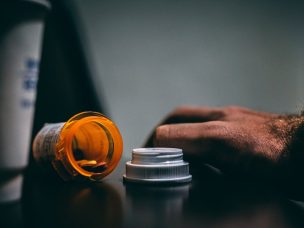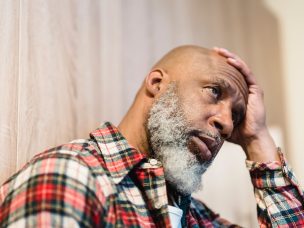Latest News
FDA Approves DNA Cheek Swab Test to ID Patients at High Risk for Opioid Addiction
In clinical trials, the test accurately assessed a raised risk for addiction 83 percent of the time The U.S. Food and Drug Administration has approved a first-of-its-kind test — the AvertD test — that uses DNA swabbed from a patient’s cheek to determine if they have a combination of genetic variants associated with an elevated...
Clocks 'Fall Back' on Sunday. U.S. Sleep Experts Want No 'Spring Forward'
It’s time to turn your clocks back this Sunday, and a leading group of sleep experts want that return to standard time to be permanent. The American Academy of Sleep Medicine (AASM) has issued a new position statement recommending the elimination of seasonal time changes. About 20 other health organizations have signed that statement, which...
Biotech Company Settles With Family of Henrietta Lacks, Whose Cells Revolutionized Medicine
Henrietta Lacks’ cells were taken without her knowledge while she was a cancer patient more than 70 years ago and were the first to be successfully cloned. Cervical cells from Henrietta Lacks, a cancer patient who died more than 70 years ago, are a cornerstone of modern medicine, but her family has never been compensated...
Juneteenth and the Pursuit of Health Equality
The historical and present-day links between Juneteenth and health equality are significant. With this article we delve into the enduring legacy of racial disparities in healthcare that African Americans face due to systemic racism and socio-economic challenges, underlining the urgent need to confront these issues. Juneteenth commemorates the end of slavery and highlights the ongoing...
Why Do Men Hide Their Feelings?
Emotions shape our behavior and relationships. Despite their importance, men often suppress their emotions. Societal expectations of men being self-reliant and providers can make emotional expression inappropriate. Due to this cultural expectation, many men feel they must suppress their emotions to fit masculine norms. These social pressures may make men feel weak and hide their...
Top Foods for Testicular Health
Keeping your testicular health in top shape is an important factor for any man. Not only does it ensure optimal fertility levels, but healthy testicles also support overall well-being and make sure your body can manage physical and emotional stress more effectively. So what can you do to maintain strong testicular health? As with all...
Talking About Your Feelings: A Guide
Talking about your feelings is never easy; it can often be intimidating, scary, and embarrassing. But learning to express your emotions safely and constructively is essential for helping us lead healthier lives – mentally and physically. It can help us create meaningful relationships with those around us and increase our self-awareness, allowing us better to...
The Impact of Lack of Affection on Men
Affectionate touch is a powerful form of human connection that brings comfort, reassurance, and a sense of belonging. However, due to cultural norms, personal inhibitions, or circumstances, many individuals experience a lack of affection in their lives. The impact of this deprivation extends beyond emotional and psychological effects; it also takes a toll on the...
In-Hospital Wearable Activity Trackers Tied to Improved Outcomes
Patients using wearable trackers had higher physical activity and functioning. Hospital-based interventions in which patients use wearable activity trackers are associated with higher physical activity levels, less sedentary behavior, and better physical functioning versus usual care, according to a review published online June 15 in JAMA Network Open. Kimberley Szeto, from the University of South Australia...
More Medical News














